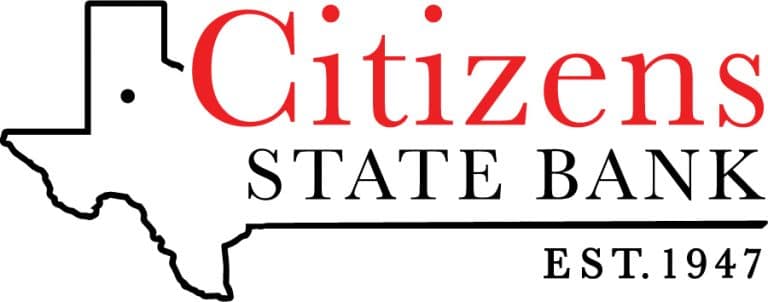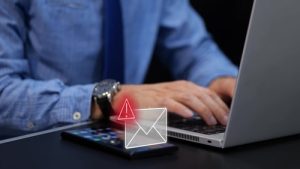Putting these basic, everyday fraud prevention practices into work will help to drastically reduce your chance of becoming a victim.If you are worried you might have compromised your Citizens State Bank account, please contact us immediately. The sooner we know of an issue, the sooner we can assist you.
Contact UsThe internet is a quick and easy way to get a lot of information, communicate with others and tasks such as online bill payment and instantly checking your bank account have never been more convenient.Unfortunately, the internet has also created an easy route for hackers and thieves to access personal and financial information. Identity theft is a problem that has persisted as technology has evolved.
As an internet user, you need to be aware of the best ways to keep your information private and secure. There is no sure way to prevent identity theft however,we can provide you with a few tips to make it more difficult for your information to be compromised.
Common Types of Identity Theft
Physical Identity Theft
Physical identity theft can still happen. Scammers can:
- Steal your driver’s license, social security card, passport, credit card or other valid ID from your wallet.
- Steal mail from your mailbox.
- Fill out a credit application addressed to you.
- Dig old bank statements out of the trash.
Digital Identity Theft
Digital identity theft is an easy way for a hacker to get your information. Some examples include:
- Phone Scams
Fraudsters may call or use robocalls, often pretending to represent a bank, loan provider, or offering “prizes” to trick people into sharing personal details. - Phishing Scams
Phishing is a way identity thieves try to lure you into giving away personal information online. Scammers set up phishing schemes through emails or websites that ask for financial information like a credit card or bank account number. Emails from phishers will usually claim to be urgent and ask for an immediate response. Remember, a reputable financial institution with account security won’t ask for personal info over the internet or the phone, unsolicited. - Malicious Computer Software
Malware is software that hackers use to steal your information or wreak havoc to your computer and save data. Some of the most common types of malware include:
- Viruses– This is the most commonly known type of malware. Viruses can enter your computer via an email attachment, during file downloads from the internet or when you visit a contaminated website. They are a type of code that replicate themselves in your computer and then infect files, making them unusable.
- Worms– are like viruses in that they replicate themselves and infect files. The difference is that worms don’t require any activation. They begin working independently as soon as they’ve breached your computer system.
- Trojans- malware usually comes to you in the form of an email and pushes you to click a link or download software.
- Spyware- The victim accidentally downloads spyware from the internet with other files that look like they are legitimate and there may not be any noticeable effects. Spyware can see what sites you visit and take personal information like bank account info and credit card numbers or passwords to online accounts.
- Ransomware- can encrypt and lock up your files once it has access to your computer. You will then be asked for money via Bitcoin or other untraceable currency to get your data back or to keep them from exposing it online.
Identity Theft Prevention
While there are a lot of ways hackers can try to steal your information, you can combat their efforts to take your data.
- If an email looks suspicious, don’t respond or open it:
- Avoid emails from addresses you don’t know or that don’t seem legitimate. Phony emails are one of the primary ways hackers try to put malware on your computer. The same goes for website downloads. Only download software from legitimate sites.
- Shred all financial documents and credit applications:
- There are no boundaries when it comes to stealing your personal information. A credit card application, receipt or bank statement in the trash is a quick way someone can take your personal information. Whenever possible, run these items through a shredder. If not, collect them to shred whenever you may have access to one.
- Don’t carry valuable personal documents on you at all times:
- Items like your social security card and passport can make it easy for criminals to steal your information. Only carry those documents with you when necessary. When you aren’t using them, keep them secured in a lockbox or other safe storage area.
- Only pay on secure websites:
- When purchasing something online, look at the address: secure websites will begin with “https,” rather than “http.” The “s” indicates that the site has an SSL certificate.
- Use a virtual private network (VPN) when on public wifi:
- Public wifi is excellent for work or recreation however, whenever you are on a public wifi network, your data is usually not encrypted or secured. This leaves information exchanged between you and the website server open to interception. A private network can encrypt data sent over a wifi connection, making it secure.
- Create strong passwords for any online accounts:
- Simple passwords can be easily hacked or guessed to gain access to payment information. A strong password usually requires upper and lowercase characters, numbers and special characters. Using more than one word can make it harder to guess.
- Install an antivirus program on your computer:
- Antivirus programs are an easy way to detect any malicious software that is downloaded onto your computer. Many reputable companies offer free antivirus software that can scan for any malware and alert you of any problems it may detect.
- Bank where your security is taken seriously:
- Your financial institution should offer a secure means to check your account. If you see unauthorized charges, you can notify your bank to freeze your account. Your bank won’t call or email you asking for your account information unsolicited.
Contact Citizens State Bank today to see how we can help you bank smarter and safer. We work hard to protect your information and keep your finances secure.
Call Us to Report Fraud
If you have discovered suspicious activity on your account or have confirmed fraudulent transactions, please contact us at one of the numbers listed below:
Citizens State Bank
224 N. Main Street
Anton, TX 79313
Phone: (806) 997-4351
Fax: (806)997-2174
Hours:
Lobby: 9 A.M. to 3 P.M. Monday – Friday
Drive Thru: 8 A.M. to 5 P.M. Monday – Friday
Citizens State Bank – Levelland
707 N College Ave
Suite 106
Levelland, TX 79336
Phone: (806) 416-8293
Hours:
Lobby: 9 A.M. TO 3 P.M. Monday – Friday
3 P.M. to 5 P.M. with appointment Monday – Friday
Citizens State Bank – W. Loop 289 Branch
2401 West Loop 289
Lubbock, TX 79407
Phone: (806) 687-0157
Hours:
Lobby: 9 A.M. TO 3 P.M. Monday – Friday
Drive Thru – 8 A.M. to 5 P.M. Monday – Friday



